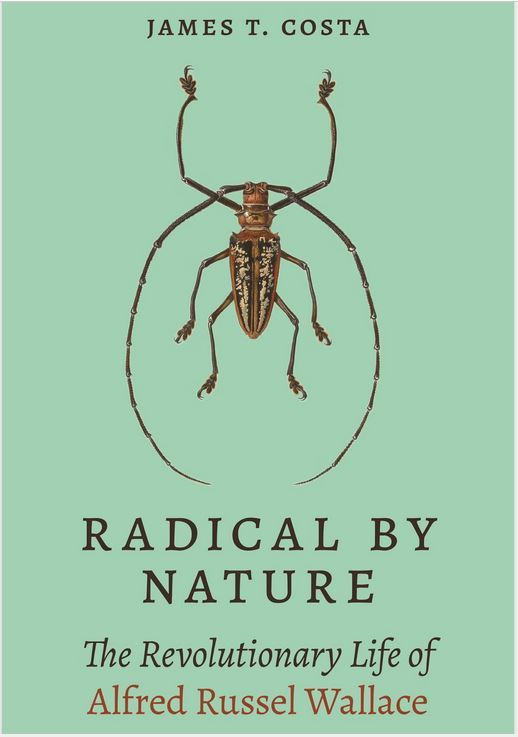#Alfred Russel Wallace
Text
#MammalMonday #MarsupialMonday #MonotremeMonday mashup: Thylacines, Bandicoots, Wombats, & an Echidna!

"Scene in Tasmania, with Characteristic Mammalia." Pl.XI in Alfred Russel Wallace's The Geographical Distribution of Animals Vol. 1, 1876; illustration by Johann Baptist Zwecker.
#animals in art#biogeography#zoology#Alfred Russel Wallace#19th century art#book art#illustration#lithograph#book plate#European art#sciart#natural history illustration#scientific illusration#Mammal Monday#Marsupial Monday#Monotreme Monday#Johann Baptist Zwecker#bandicoot#wombat#thylacine#echidna#mammals#marsupials#monotremes
113 notes
·
View notes
Text
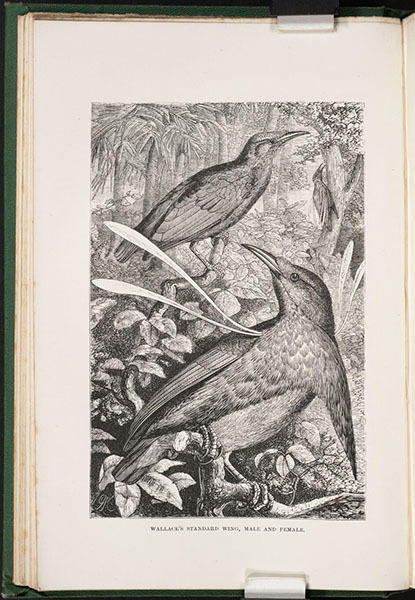
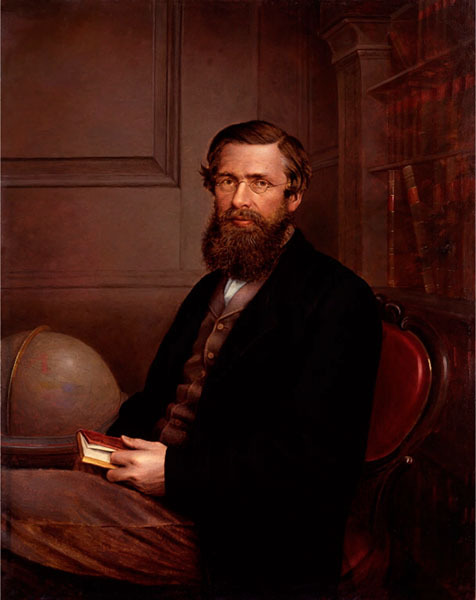
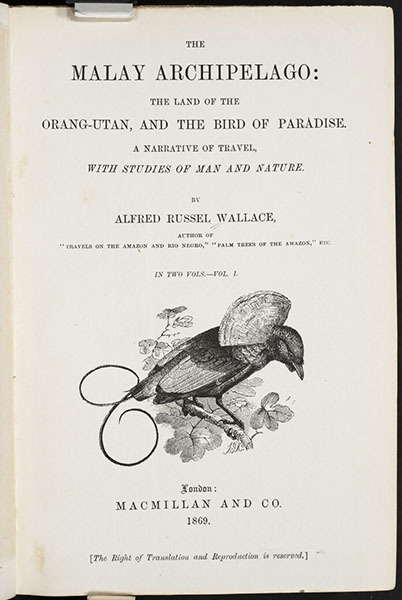
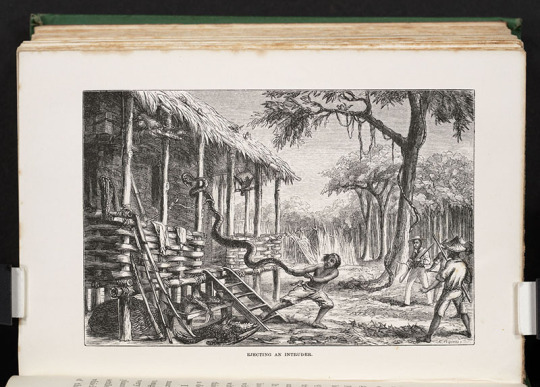
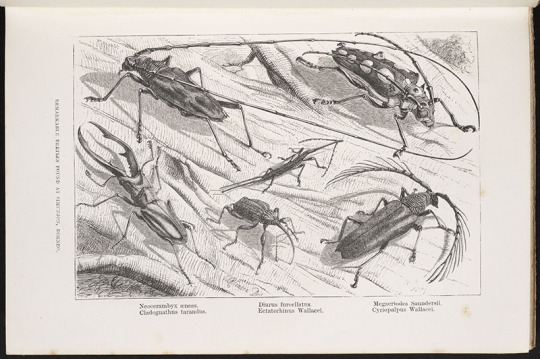
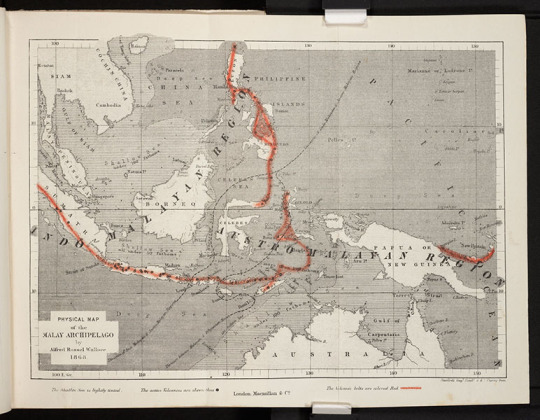
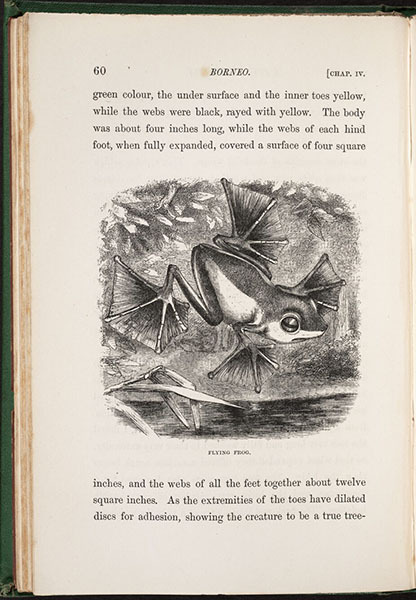
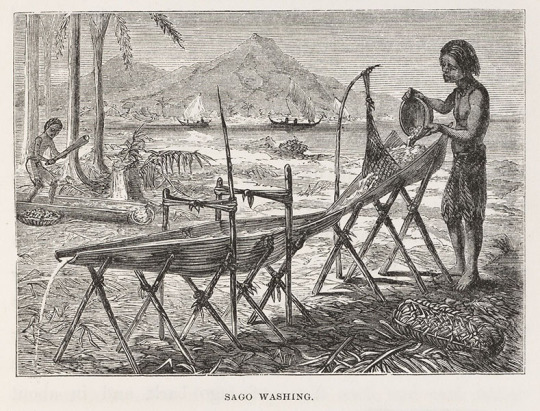
Alfred Russel Wallace – Scientist of the Day
Alfred Russel Wallace, an English naturalist, was born Jan. 8, 1823, in Wales.
read more...
#Alfred Russel Wallace#evolution#travels#exploration#histsci#histSTM#19th century#history of science#Ashworth#Scientist of the Day
23 notes
·
View notes
Text
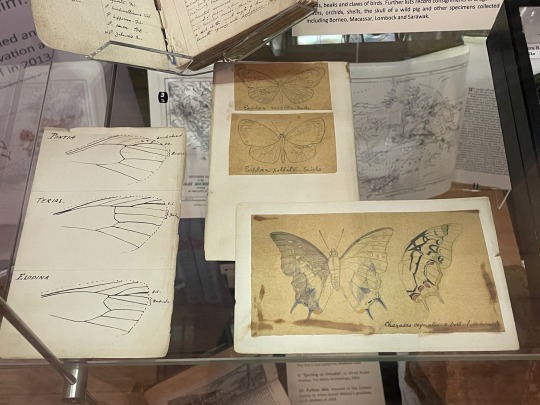
1 October 2023 / Went to a lecture at the Linnean Society a little while back and got to see their display of Wallace's notebooks and work! I was, of course, especially interested to see the materials on butterflies.
Since my last post, I fixed all of my butterfly and moth code, finished making all of my figures for this quantitative chapter, AND managed to draft the entire thing! I've got bee code running in the background now, and tomorrow I'll work on writing something else before going back and revising the chapter I finished. For one thing, I need to assemble an appendix with all of the statistical nitty-gritty that isn't going in the main chapter.
Tomorrow, I also need to send emails, make my planner for November, and generally chill before getting started on revisions.
I'm almost done listening to Demon Copperhead! Then I'm either going to finish The Little Friend or start Masters of Death. One of the two.
9 notes
·
View notes
Text
'The tendency in popular thought to view the biological world in economic terms was present at the nineteenth-century beginnings of Darwinian science.
Charles Darwin, after all, borrowed the term “survival of the fittest” from the sociologist Herbert Spencer, that darling of robber barons. Spencer, in turn, was struck by how much the forces driving natural selection in On the Origin of Species jibed with his own laissez-faire economic theories.
Competition over resources, rational calculation of advantage, and the gradual extinction of the weak were taken to be the prime directives of the universe.'
– David Graeber, What’s the Point If We Can’t Have Fun?
By the way, by contrast, the other great, independent discoverer of Evolution, Alfred Russel Wallace, was a socialist, indeed an anarchist, even if he didn't use the label.
“However, we did not talk of geography during the afternoon we spent together, but of Anarchism, of which [Élisée Reclus] was one of the most convinced advocates, and I was very anxious to ascertain his exact views, which I found were really not very different from my own. We agreed that almost all social evils — all poverty, misery, and crime — were the creation of governments and of bad social systems ; and that under a law of absolute justice, involving equality of opportunity and the best training for all, each local community would organize itself for mutual aid, and no great central governments would be needed, except as they grew up from the voluntary association of their parts for general and national purposes.”
— Alfred Russel Wallace, My life: A Record of Events and Opinions
#david graeber#anarchist anthropology#charles darwin#what is the point if we cant have fun#anarchism#alfred russel wallace
3 notes
·
View notes
Text
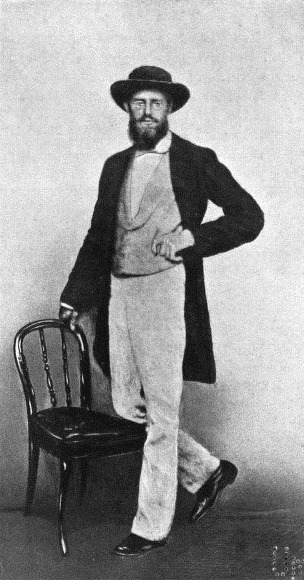
Happy deathday to Alfred Russel Wallace, who independently conceived of the theory of natural selection at the same time as Darwin, and when Darwin found out about it, he quickly shat out and published "the origin of species" to beat Wallace to the punch
#happy death day#that's true#alfred russel wallace#natural selection#the origin of species#charles darwin#no shit twitter wouldn't let me post this#or x or whatever#stupid bullshit
1 note
·
View note
Text
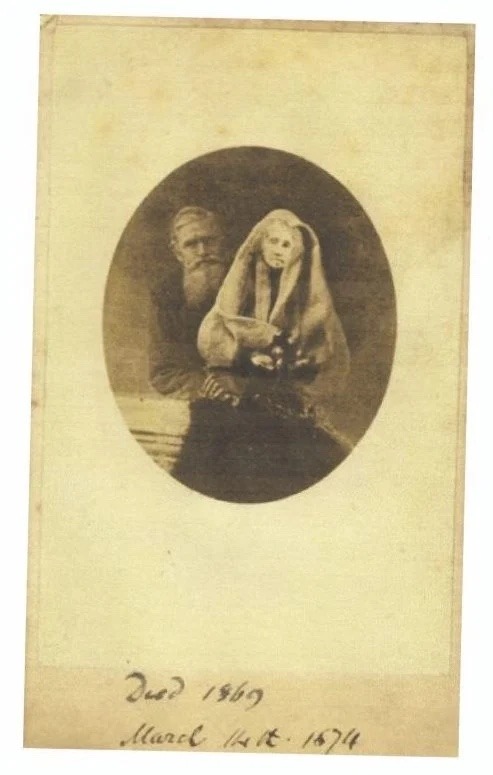
Frederick Hudson, Alfred Russel Wallace with the spirit of his mother, 1874.
2 notes
·
View notes
Link
I tend to be suspicious of history of science books written by practising (or retired) scientists, but a bit curious about this.
Costa (Darwin’s Backyard), a biology professor at Western Carolina University, gives naturalist Alfred Russel Wallace (1823–1913) the biography he deserves in this definitive account. Drawing on newly available notebooks and writings by Wallace, Costa suggests that though his subject is best known for discovering natural selection around the same time as Darwin, he also deserves recognition for “his enduring humanity and lifelong activism for social justice.” Wallace was born in Wales and moved to London as a teen, where he connected with utopian socialist Robert Owen, whose philosophy influenced Wallace’s social activism later in life. In 1848, Wallace traveled to Brazil to collect insects, the first of several expeditions that led him to develop a theory of evolution, then called “transmutation,” independent of Darwin. Costa highlights Wallace’s preoccupation with social reform near the end of his life, noting that he advocated for women’s rights and devoted his last book to “addressing the continued labor and wage problems of the day.” Rich research breathes new life into the material, and Costa’s attention to Wallace’s passions beyond the scientific breakthroughs he’s remembered for—including a fascination with astronomy—capture the range of his interests and depth of his character. Comprehensive and revelatory, this is a first-rate take on an overlooked figure in scientific history. (Mar.)
5 notes
·
View notes
Text


Happy 200th Birthday to the "father of biogeography".
(8 January 1823 - 7 November 1913)
#father of biogeography#alfred russel wallace#natural selection#200th birthday#identified the faunal divide now termed the Wallace Line#scientists#one of the great alfreds of science#19th century's leading expert on the geographical distribution of animal species
3 notes
·
View notes
Text
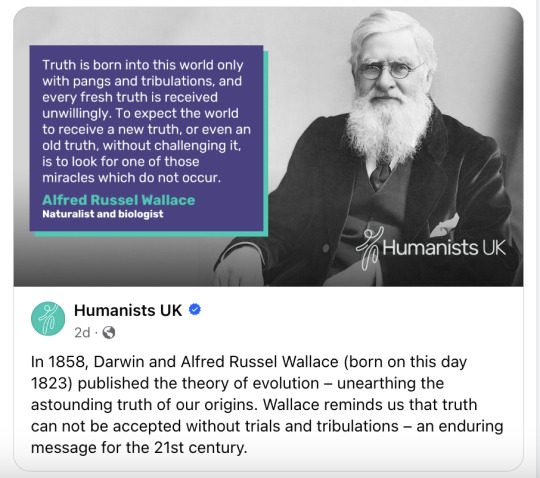
Timeless wise words from one of my favourite biologists, Alfred Russel Wallace.
#quotes#motivational#inspiration#alfred russel wallace#19th century#truth#wisdom#deep thoughts#thought provoking#naturalist#biologist#scientist#sciencecore#theory of evolution#evolutionary biology#words#inspirational quotes#motivational quotes
1 note
·
View note
Text
Alfred Russel Wallace was born #OTD (8 January 1823). Resharing this blog post from last year's bicentennial:
#animals in art#19th century art#scientific illustration#Alfred Russel Wallace#blog post#frog#frogs#Wallace's Flying Frog#OTD
2 notes
·
View notes
Photo
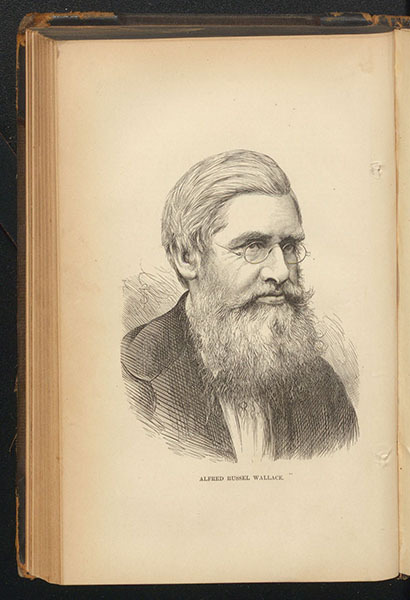
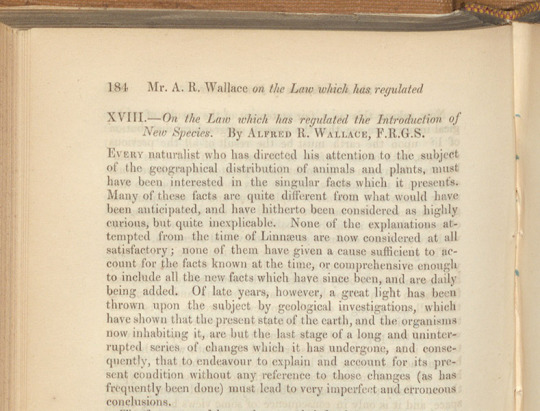
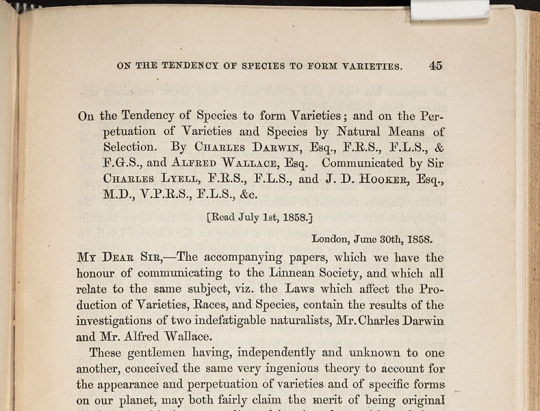
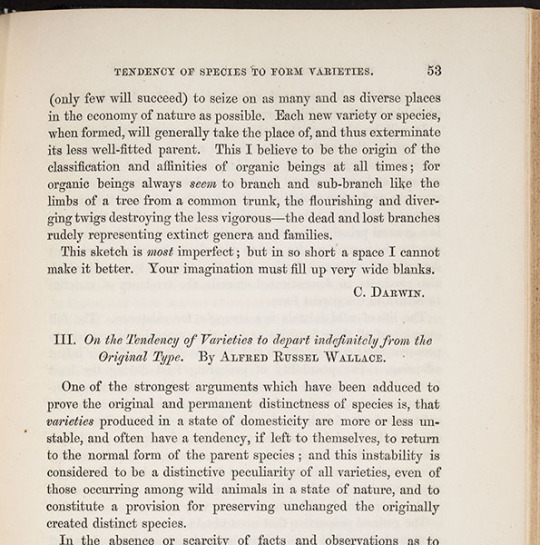
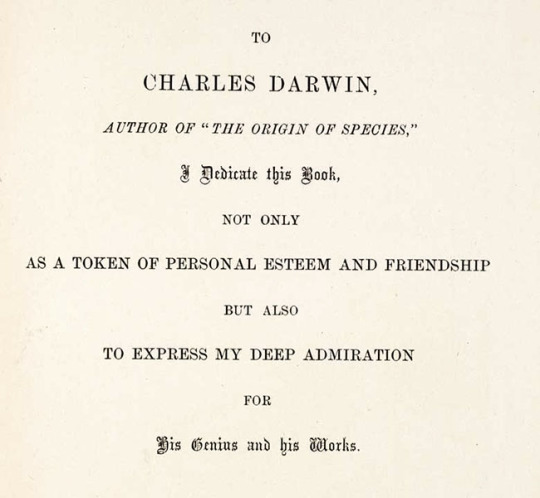
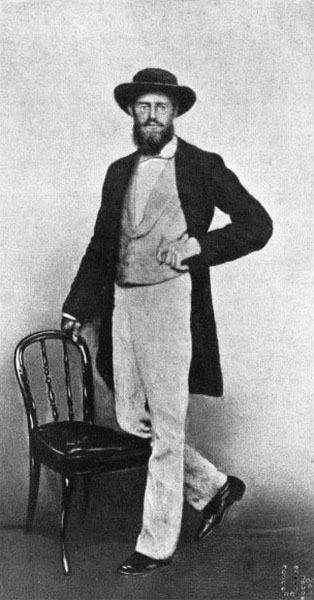
Alfred Russel Wallace – Scientist of the Day
Alfred Russel Wallace, a Welsh naturalist, died Nov. 7, 1913, at the age of 90.
read more...
#Alfred Russel Wallace#evolution#natural selection#histsci#histSTM#19th century#history of science#Ashworth#Scientist of the Day
11 notes
·
View notes
Text


7 October 2023 / More from the Linnean! I love seeing Wallace specimens.
Since my last post, I finished drafting my chapter, sent it off to my supervisors, and finally took a whole day completely off. The bee code also finally finished running, and the results have been uploaded to the group fileshare. And I sent a bunch of emails, as usual. AND we had a paper accepted! And I had a very productive meeting with another person in the department who does statistics stuff to get help with building a model.
Today I got to working on my next chapter (which is actually the chapter that comes before the one I sent to my supervisors). Tomorrow I need to keep working on it and also hopefully get to coding the first attempt at The Model.
I also finished Demon Copperhead! Instead of finishing The Little Friend or starting Masters of Death, I'm....speeding through a Christie novel. For funsies.
6 notes
·
View notes
Text
Evolución Biológica ¿Cuáles son las principales causas de la variabilidad genética y el cambio evolutivo?
¿Qué tienen que ver la teoría de la evolución planteada por Darwin y Wallace y las leyes de Mendel?
Bueno, en realidad, aunque estos personajes jamás se conocieron dado que las Leyes planteadas por Mendel se dieron a conocer hasta principios del siglo XX, la comunidad científica se las arregló para conjugar la teoría de la evolución de Darwin y Wallace con las Leyes de la herencia, de tal modo…

View On WordPress
#Alfred Russel Wallace#Charles Darwin#Ernst Mayr#Evolución Biológica#Genética evolutiva#George Gaylord Simpson#Gregorio Mendel#Julián Huxley#Theodosius Dobzhansky
0 notes
Text
Wallace's extraordinary achievement in deducing the role of evolution through natural selection has been largely forgotten. But his relentless attention to the geographic distribution of species--enabled by meticulous details on specimen tags--eventually shored up his legacy as the founder of a new field of scientific inquiry: biogeography.
~ The Feather Thief: Beauty, Obsession, and the Natural History Heist of the Century by Kirk Wallace Johnson
1 note
·
View note
Text
He had lived among natives of South America and South-East Asia and he thought of them as equals, morally if not always intellectually.
"Nature via Nurture: Genes, Experience, and What Makes Us Human" - Matt Ridley
#book quote#nature via nurture#matt ridley#nonfiction#south america#southeast asia#alfred russel wallace
1 note
·
View note
